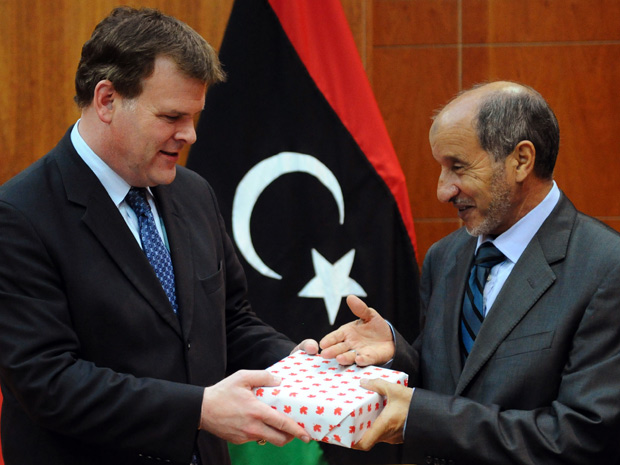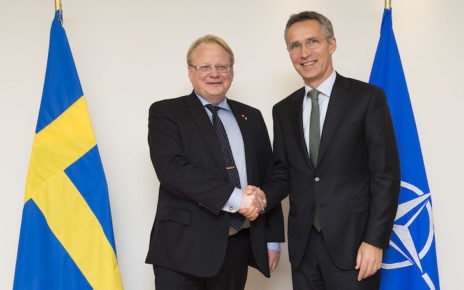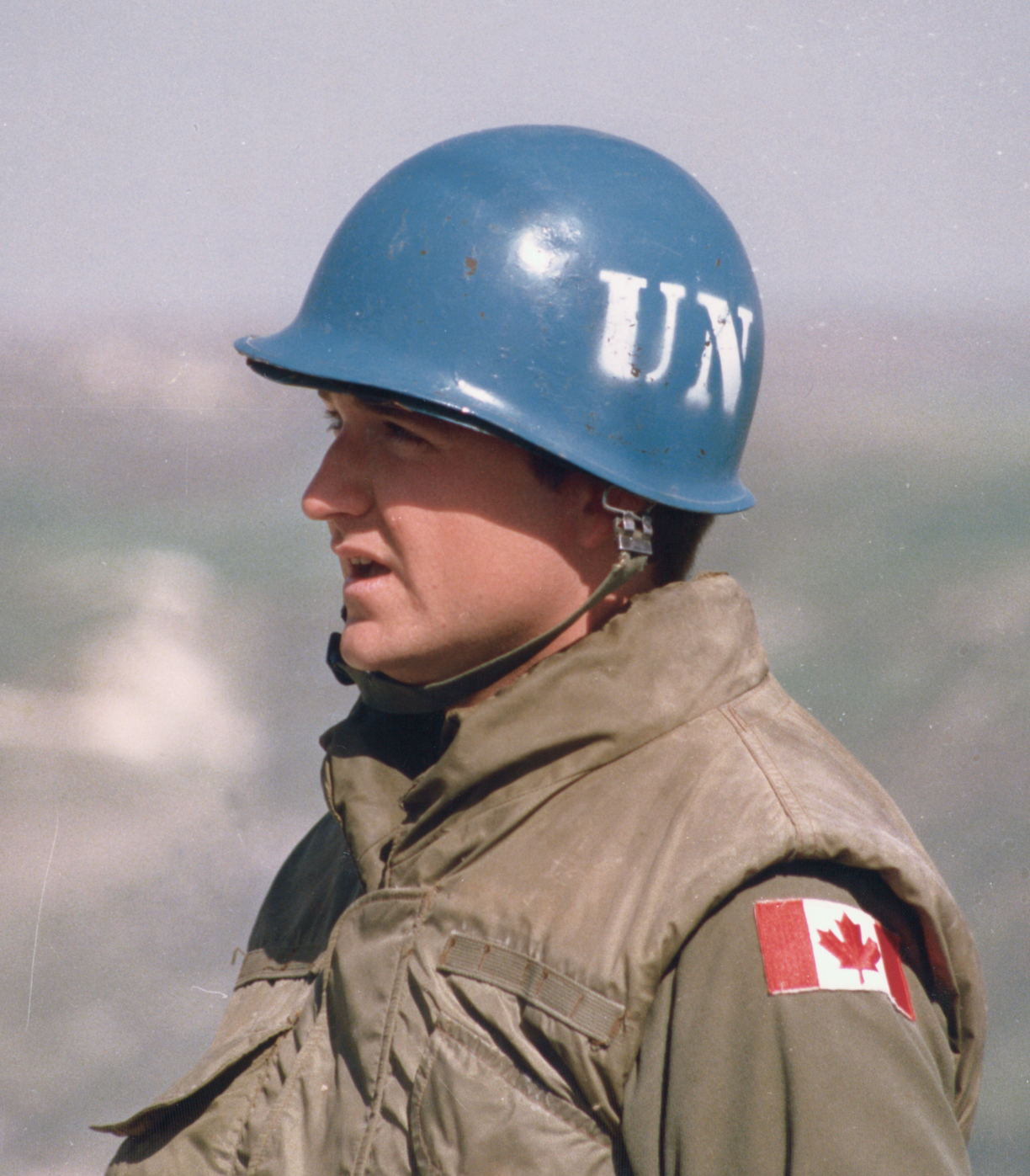By: Ryerson Neal
Glenn Thibeault is the NDP Member of Parliament for Sudbury. He serves as Critic for Consumer Protection and Amateur Sport. In October he attended his first session of the NATO Parliamentary Assembly in Bucharest, Romania.
Q. What got you interested in the parliamentary side of NATO?
A. I’ve always had an interest in the political side of NATO, but because my critic portfolios in the House didn’t necessarily fall to defence or foreign affairs, I got involved in the NATO Parliamentary Assembly. I just had that interest. So when I got involved in the Assembly I got the opportunity to go to Romania. One of the government-side members was going, so I went to represent the official opposition. I thought this was just a great opportunity to learn more and at the same time represent Canada and the government opposition in our discussions.
Q. How did you find your first NATO Parliamentary Assembly? Was there anything that surprised you about it?
A. I went into it not really knowing what to expect. I’ve been to other parliamentary assemblies, and sometimes you can get bogged down in the bureaucracy, but that wasn’t the case here. We had so many countries and NATO allies involved and good conversations relating to what we’re doing in Afghanistan, the situation in Libya, post-Orange Ukraine, Belarus, the Middle East – all of the things that are driving the day to day news, the day to day issues. I was sitting on the Political Committee, chaired by a fellow Canadian, Senator Raynell Andreychuk. There were other committees, but the Political Committee was where I found my interest and where I thought I could best contribute and serve the assembly.
Q. Was there a particular issue you wanted to learn more about or wanted to see discussed in the Political Committee? What was the hot topic?
A. Well, of course, at the time I think Libya was the hot topic, so hearing the political discussion of that was really intriguing. But the presentations and discussions that really got me were those about post-Orange Ukraine and what is happening there. As a member of the Opposition in our House of Commons, and coming from a country where even the sitting government would admit the importance of having a political opposition, to hear about what is happening to opposition members in Ukraine was something that really sparked an interest for me. It just shows night and day between the two countries. And then to speak and hear the concerns of other countries who are coming from similar circumstances was not only interesting, but intriguing. We would have conversations during our breaks and I would try to find out more information. It just shows the importance of NATO’s role and how Canada, can continue to play, both from government and opposition, a role in understanding the world around us.
Q. As a parliamentarian, do you feel that you have benefitted from participating in the Assembly?
A. Totally. Unfortunately my party’s critics for defence and foreign affairs couldn’t go, so I was taking rapid notes because I felt it was my obligation to share that information with them back home. So not only was it helpful for me to get a better understanding of our role in NATO on the political side, but it also helped me share that role with my caucus and the critics in our shadow cabinet who cover international and defence issues. The Assembly plays and important function for members of parliament to get a better understanding of what we’re doing in NATO and how to be part of it.
Q. The Assembly brings together parliamentarians from across the political spectrum. How did you find that experience? I understand you participated in something called “The Social Democratic Caucus”?
A. [laughs] It was actually called the “Socialist Caucus.” It seems that “socialist” is a dirty word in North America, but I guess most of the EU countries have socialist governments or socialist parties so it’s a more accepted term over there. For me, I was walking a little timidly in the sense that I didn’t quite know what it was all about; after all, I’m a social democrat and I come from North America and may have different values than a “socialist”. But I walked in the door and was greeted by a great big smile and a handshake from members of the Labour Party in the UK, and everything was fine. In the end, we’re all trying to accomplish the same goal. I could liken this to a game of golf: some of us might go up the left side, some of us might go up the right side, but at the end we’re all trying to put the ball in the hole. We all have the same goal, we’re all trying to make our countries better. So to have that conversation with likeminded people about likeminded issues, that’s great. But it’s also good to have the opposite side and have those discussions with the people who don’t see your political side of things. Then what we’re able to do is have that conversation and find what we think works best. Through our caucus we had some great discussions, some great motions presented, and some that were accepted by all political stripes. It was a great opportunity to talk about the issues that we see as important, and then to move forward. So it was a great learning opportunity and a great way to build relationships with other countries and other political parties.
Q. So these political caucus meetings happen in the wings of the main Assembly?
A. On the first day they always have the conservative-Christian heritage caucus, the democratic and alternative liberal caucus (I don’t know if these are the exact titles), and then the socialist caucus. Of course, as a New Democrat I’m sitting there scratching my head wondering hmmm… where do I go? But as it turns out there is quite a range of views in the Socialist Caucus, and I guess it can vary from people who are social democrats like me to those who are true dyed-in-the-wool socialists. We had conversations and even within the caucus we didn’t all agree on everything. Some are too right some are too left, but you have the discussion all the same and I think that was what made this trip and assembly such a learning opportunity for me. Not just because of the caucus, but because of everything from the caucus to the political committee, from the conversations you’re having afterwards to the other parliamentarians you’re meeting. We’re all having the same discussions about getting that ball into the hole.
Q. In some ways, this event must be a sort of mirror for you as a Canadian. Did you get a sense of what other parliamentarians think of Canada? Did anything surprise you?
A.You know, one of the interesting things I found was how significant a role Canada plays in NATO and how Canada is seen as one of the organization’s leaders. I had a couple of parliamentarians from other countries approach me and just thank me for Canada’s service to the world, whether it was for our work in Afghanistan and Libya or for peacekeeping. People know the significant role that we play within NATO and it just made me very proud to be a Canadian and to wear my Canadian pin on my lapel ( in fact I was glad to have brought a bag full of those pins because I had to keep giving them away to people who wanted one). The parliamentarians look to Canada as a leader and I think that’s demonstrated by how many Canadians are chairing committees in the Assembly.
Most people hear about the military side of NATO – the planes flying in Libya, the role NATO has in Afghanistan – but there’s also the political side of it. That’s where a lot of discussion happens and the Assembly was just a great opportunity to learn, to share with my caucus, and now continue to have involvement in NATO’s parliamentary side. In fact, I’m very proud now to be one of the counsellors for the official opposition on the newly elected NATO parliamentary association here in Ottawa.



